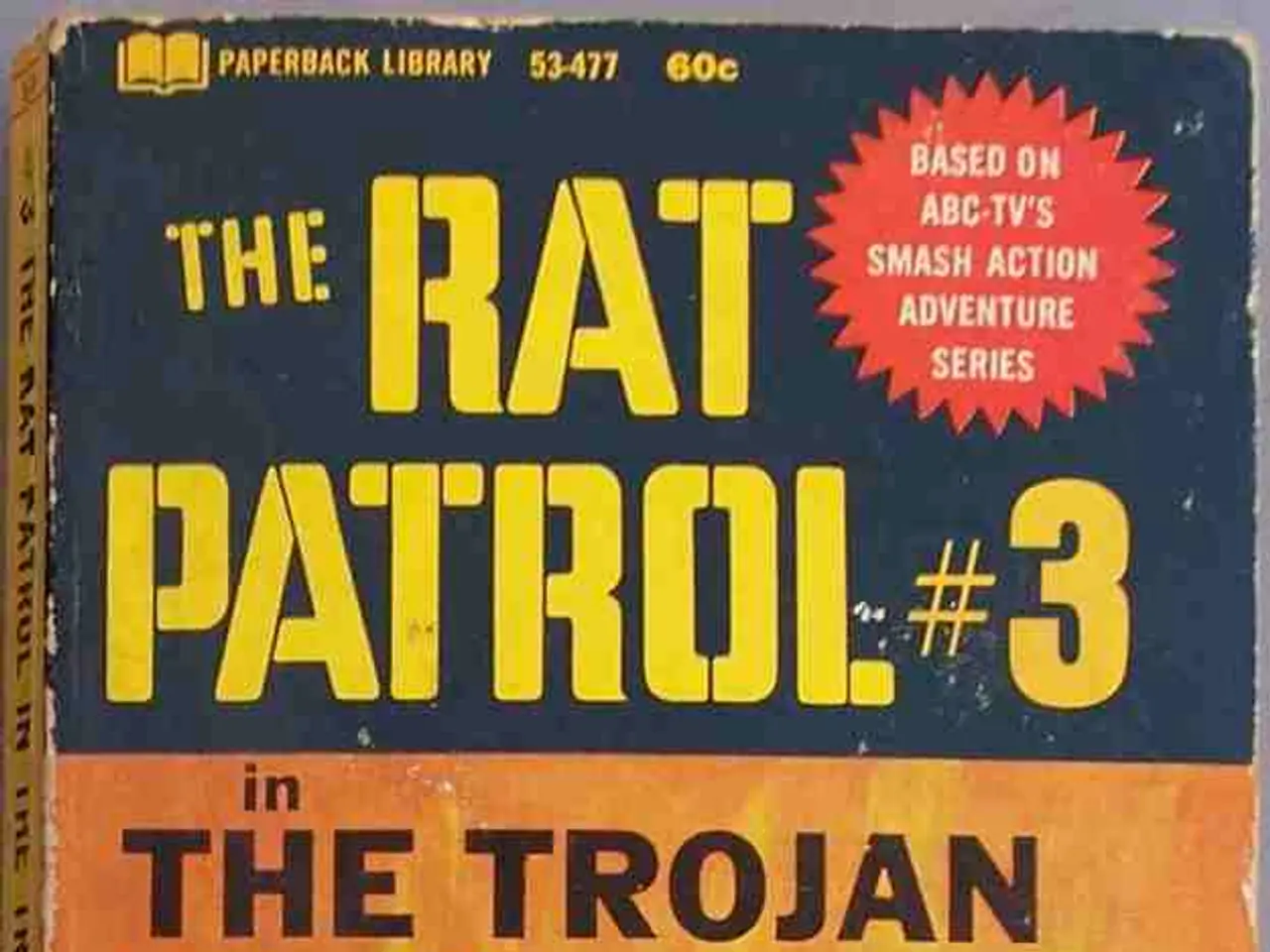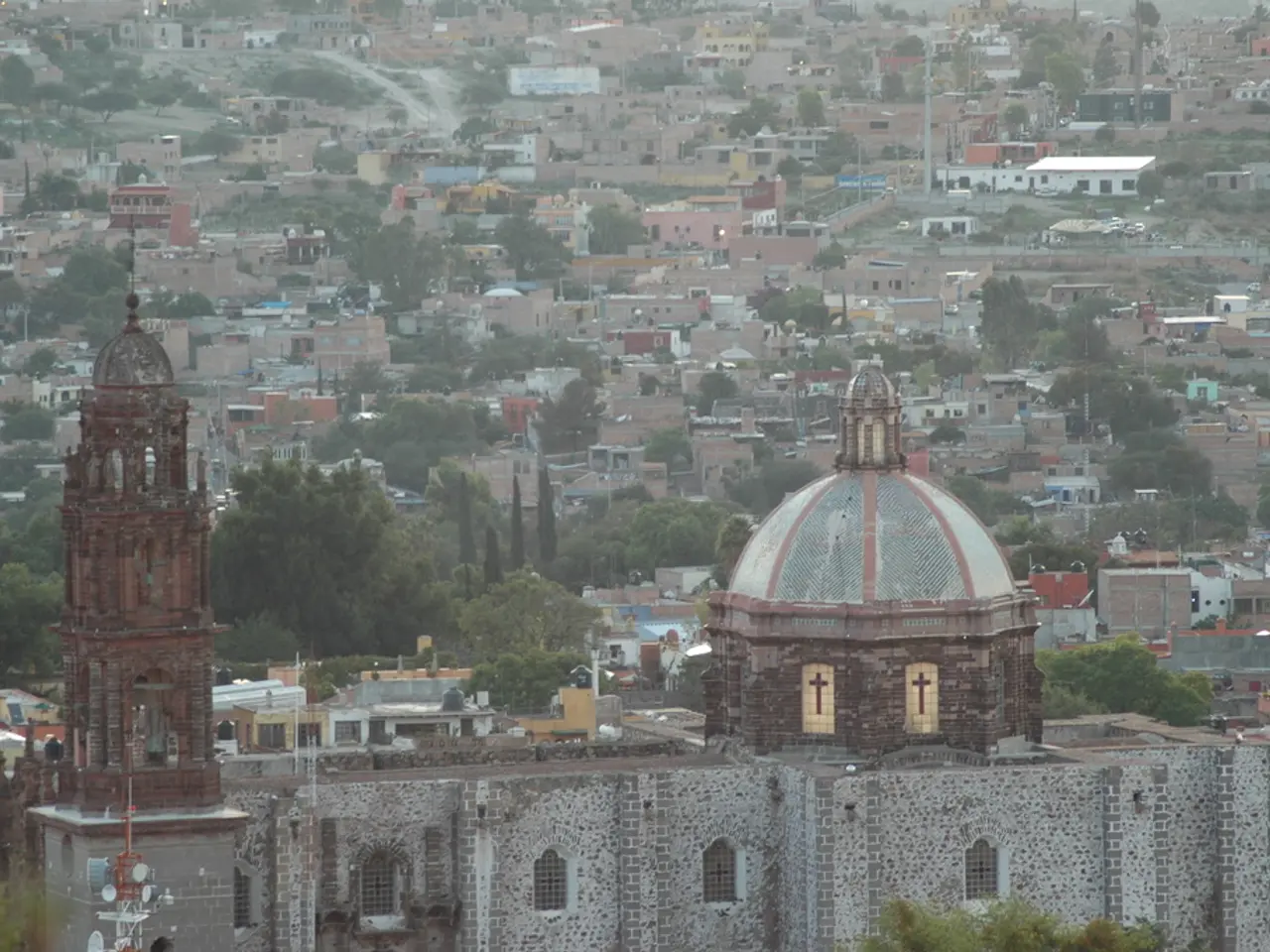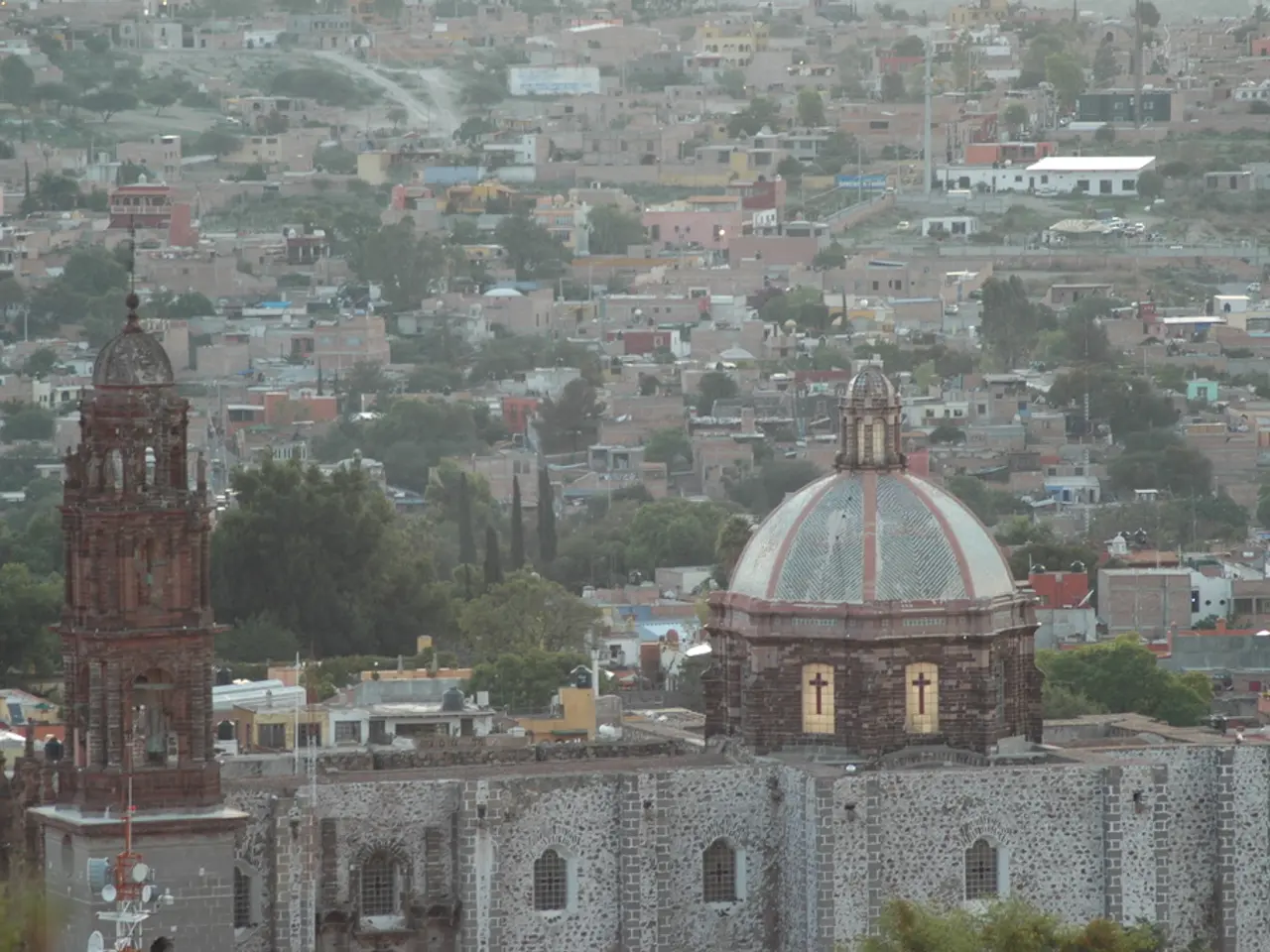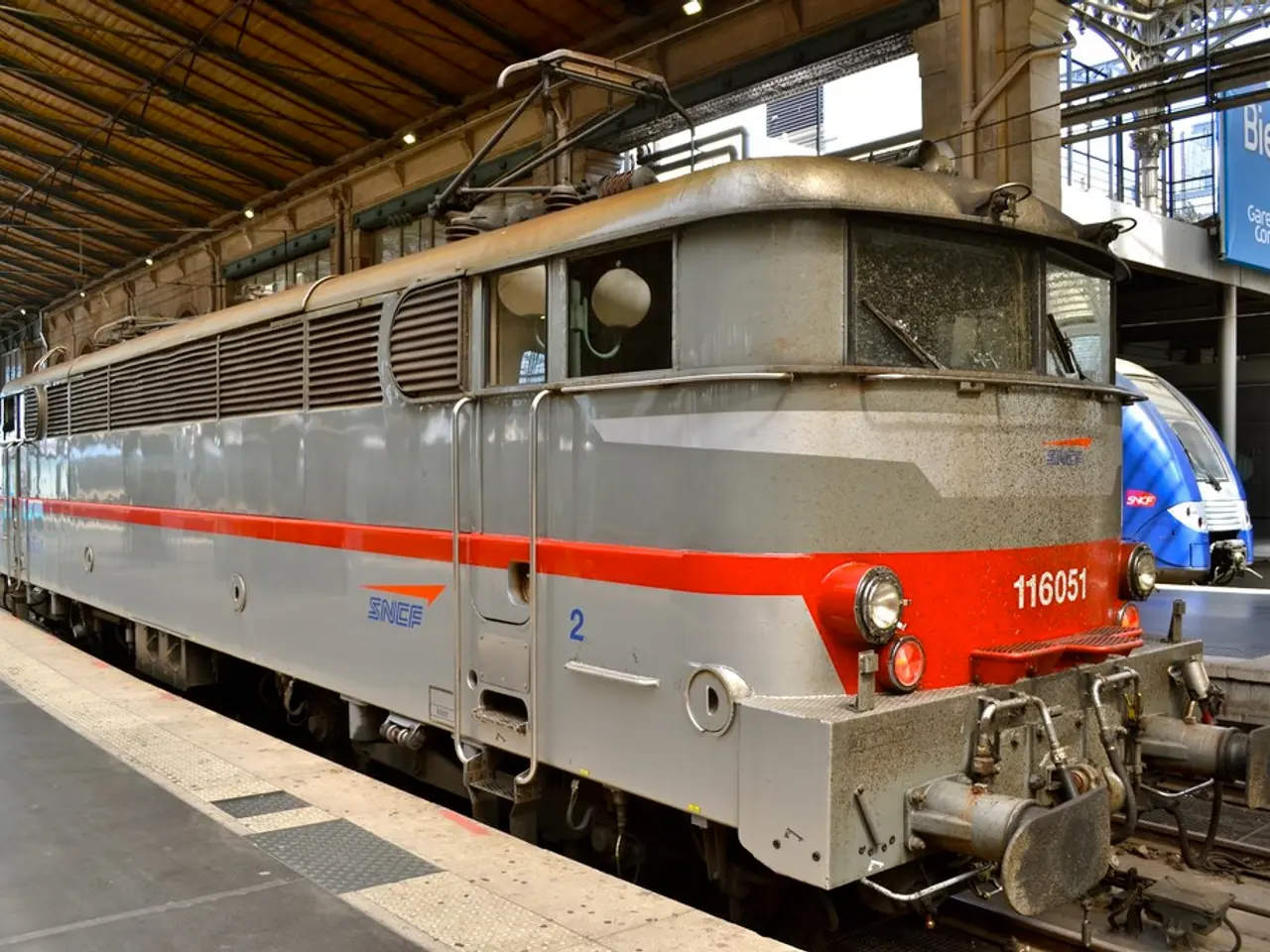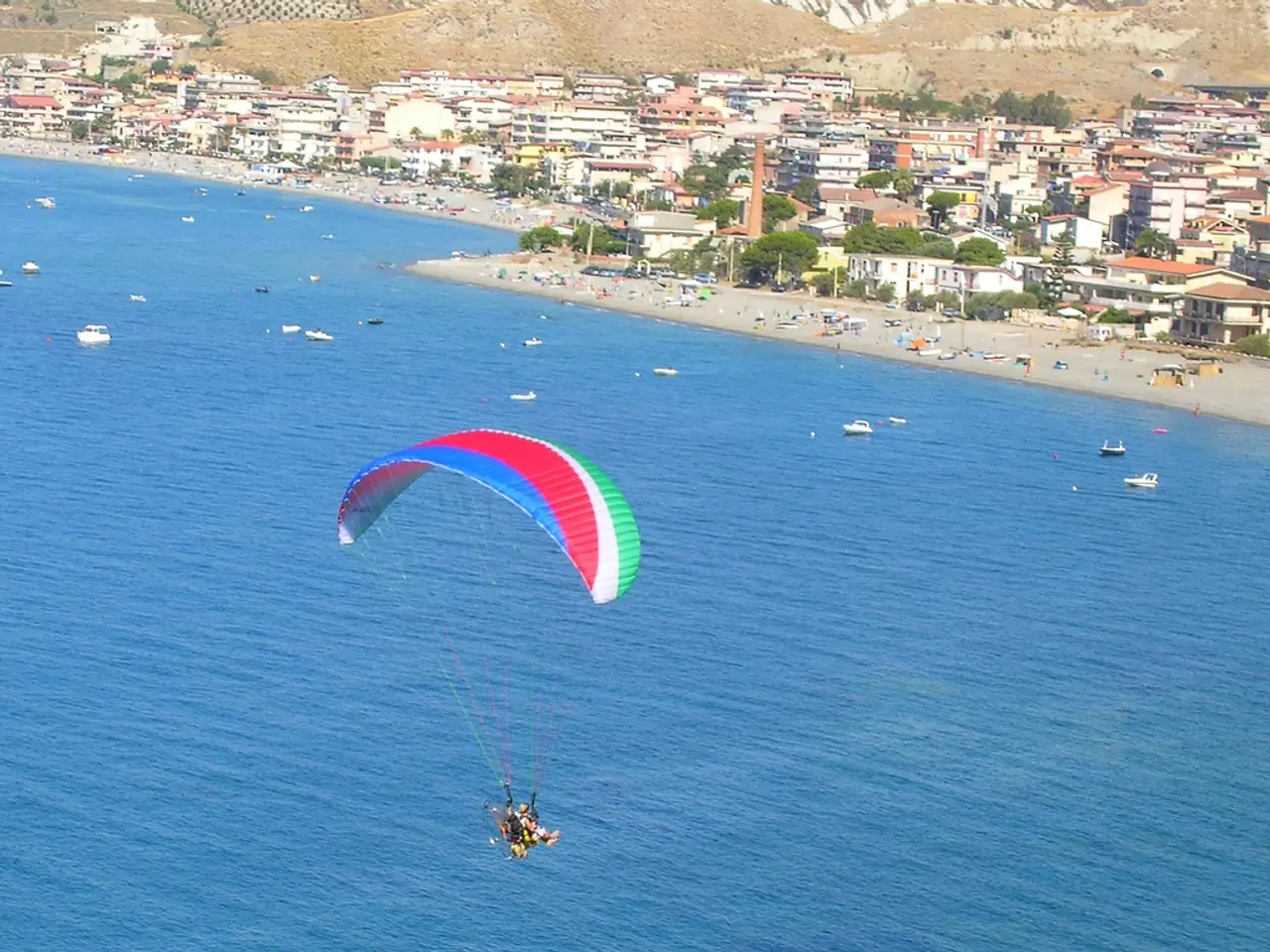Post-Confrontation: Hundreds Perish and Disarray in a Syrian Region - In post-conflict: Scenes of turmoil and significant casualties in a Syrian province following the skirmish
In the heart of Syria, the province of Suwaida is grappling with a complex and volatile conflict that has been ongoing since July 13, 2025. The primary belligerents in this conflict are the Druze militias and Sunni Bedouin tribes, with the involvement of Syrian government forces and Israeli military intervention escalating the situation.
The fighting began with the abduction of a Druze merchant, which quickly escalated into armed confrontations between Druze militias and Sunni Bedouin clans in Suwaida city and surrounding villages. The Syrian government initially intervened by siding with the Bedouin tribes against the Druze militias, but this led to severe violence, including allegations of government-affiliated fighters executing Druze civilians and looting homes.
Amid escalating violence and casualties reaching hundreds over four days, Syrian government forces largely withdrew from Suwaida on July 16 following an agreement with local Druze leaders to de-escalate the conflict. This agreement established local police and internal security to maintain order and aimed to integrate Suwaida back into the Syrian state while investigating crimes committed during the clashes.
However, despite the ceasefire, Bedouin armed groups did not fully accept the truce and launched renewed assaults with goals such as freeing Bedouin prisoners of war detained by Druze factions. Clashes resumed in Suwaida and spread to other southern areas including Rif Dimashq governorate.
The Israeli military intervened starting around July 15, citing a responsibility to protect the Druze minority in Syria, which Israel regards as a potential ally and loyal minority within its own borders. Israeli airstrikes targeted Syrian army positions near Suwaida and in the wider southern and western regions, including a notable strike on the 107th brigade headquarters in Latakia governorate.
Following the renewed clashes and Israeli strikes, a new ceasefire was mediated by the US, Turkey, and Arab nations. Under this ceasefire arrangement, Syrian government troops are set to return to Suwaida to restore stability and protect state institutions, while Druze factions and clerics maintain a significant role in local security.
As of July 18, 2025, a ceasefire mediated by international actors is in place, and Syrian government forces are redeploying to Suwaida to stabilize the province. However, tensions persist due to unresolved grievances and the complex interplay between local tribal groups, the Syrian state, and external actors like Israel.
The humanitarian situation in Suwaida is precarious, with houses reduced to rubble, water and electricity supplies cut off, and the city's hospital closed due to damage. Bodies of some of the executed civilians were left bound or burned on the roadside. The provincial capital, Suwaida, is reportedly cut off from essential services.
The Syrian Observatory for Human Rights has reported that 83 Druze civilians were executed, and over 500 people, including many civilians, have died in the fighting in the Syrian province of Suwaida.
Political leaders have weighed in on the conflict. Wadephul, a prominent Syrian politician, strongly condemned the attacks on members of the Druze minority and demanded that those responsible be held accountable. Al-Sharaa, another Syrian official, stated that the Druze are under the protection of the state and crimes against the minority will be pursued without exception. Wadephul also stated that the Syrian government is obliged to protect its citizens regardless of their confession or ethnicity, and that the government in Damascus must start an inclusive political process in which all citizens of Syria are represented.
In a statement, Israeli Prime Minister Benjamin Netanyahu stated that a ceasefire has come into effect in Suwaida, Syria, due to the intervention of the Israeli military. However, the conflict remains fragile, with accusations of Druze militias committing violence against Bedouin civilians, and Bedouin factions rejecting parts of the ceasefire.
Foreign Minister Johann Wadephul called on all domestic and foreign actors to refrain from any action that could endanger the stability of Syria and the transition process. Al-Sharaa held some Druze leaders partially responsible for the clashes in Suwaida.
In conclusion, the conflict in Syria's Suwaida province is a complex and volatile situation involving Druze militias, Sunni Bedouin tribes, Syrian government forces, and Israeli airstrikes. The ongoing ceasefire efforts aim to prevent further bloodshed but face challenges on the ground as of mid-July 2025.
- The Commission, given the volatile conflict in Syria's Suwaida province involving Druze militias, Sunni Bedouin tribes, Syrian government forces, and Israeli airstrikes, could be asked to submit a proposal for a directive on the protection of workers from the risks related to exposure to the political and crime-related tensions that characterize this war-and-conflicts situation.
- Amidst the general-news headlines about the ongoing conflict and tense ceasefire in Syria's Suwaida province, political leaders such as Wadephul and Al-Sharaa have spoken out, calling for the protection of all citizens, regardless of their ethnicity or confession, and for those responsible for violence to be held accountable, emphasizing the need for an inclusive political process in Syria's future.
